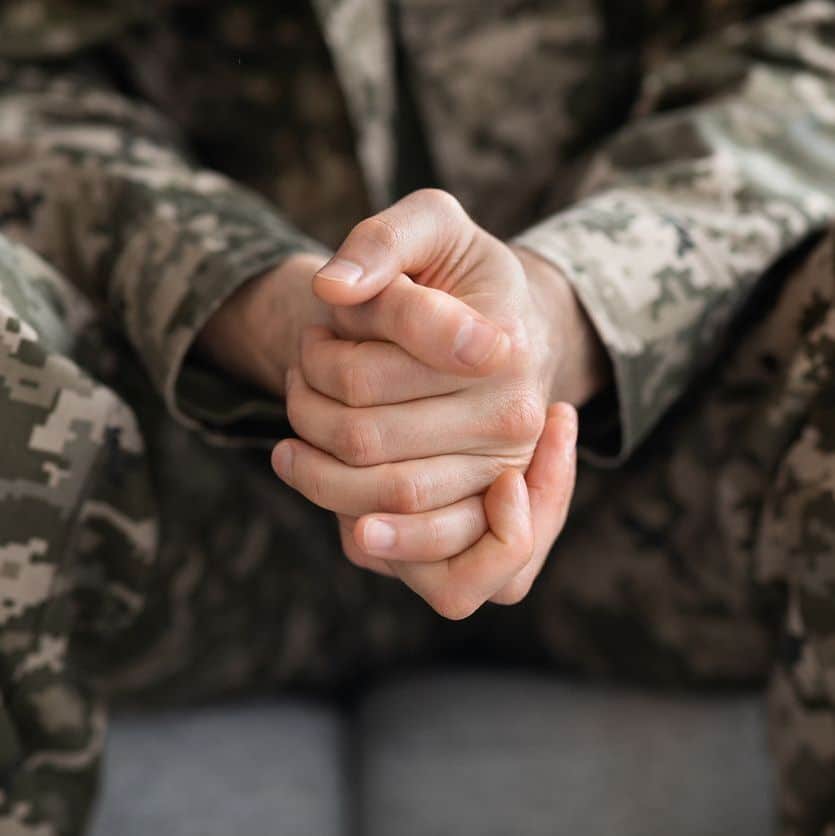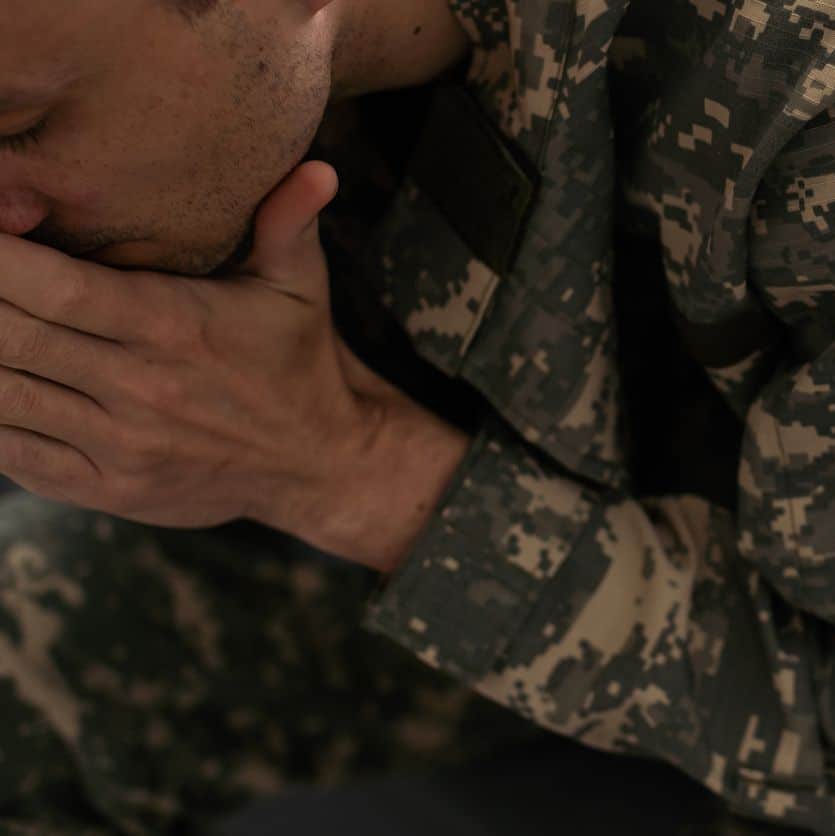Serving in the military is a selfless act that deserves respect. In recognition of their service, veterans and active military members may qualify for the military diversion program, which diverts them from the criminal justice system into treatment and rehabilitation.
Many brave and courageous men and women who serve in the military are routinely exposed to situations that leave a permanent mark on their psychosocial functioning. During their service, military members may suffer physical trauma as well as mental and psychological issues, which often cause challenges when transitioning out of the military back into civilian life.
Courts recognize that both mental and psychological health plays a pivotal role in the commission of certain crimes, which is why the state of California established the “military diversion” program to emphasize treatment and rehabilitation over incarceration and punishment for eligible veterans and active-duty military members.
At Gressley & Donaldson, we treat the heroes who make the ultimate sacrifice for our country with utmost respect and dignity. Our team provides current and former military service members with the support they need when facing criminal charges. We work tirelessly to help them get accepted into the military diversion program for misdemeanor offenses PC 1001.80 and take advantage of the benefits it offers.
Are you a veteran or a current member of the U.S. military facing criminal charges? At Gressley & Donaldson, we believe you deserve a second chance and are committed to helping you enter the military diversion program to avoid jail time and a criminal record.
Review of Penal Code 1001.80 PC Military Diversion in California
Military diversion is a type of pretrial diversion program governed by California Penal Code 1001.80 PC. Under this law, a judge can suspend criminal proceedings for a misdemeanor offense while the veteran or active-duty military member obtains treatment for:
- Traumatic brain injury (TBI)
- Post-traumatic stress disorder (PTSD)
- Military sexual trauma
- Substance abuse or addiction to alcohol or drugs
- Mental health issues
Military diversion for misdemeanor offenses PC 1001.80 is available as an alternative to incarceration in misdemeanor crime cases filed against current members of the U.S. military or veterans. There is no requirement that the defendant plead guilty or no contest in order to participate in the military diversion program. Instead, the judge will suspend criminal proceedings against the defendant while they receive treatment and education to address the underlying issue in their particular case.

Who Qualifies for PC 1001.80 Military Diversion?
Veterans and active-duty military members may qualify for military diversion if they suffer any of the following during or as a result of their military service:
- Traumatic brain injury (TBI). A TBI is a common type of injury among military service members that impacts one or more parts of the brain and impedes its normal functioning. During their service, a military service member could suffer a TBI as a result of a violent blow or gunshot to the head or exposure to explosives. According to the search –U.S. Department of Veterans Affairs, nearly 414,000 U.S. service members were diagnosed with a TBI between 2000 and late 2019. The cognitive issues resulting from traumatic brain injuries can affect many areas of the person’s life and contribute to criminal behavior.
- Post-traumatic stress disorder. Post-traumatic stress disorder is a mental health condition that affects individuals who have undergone a traumatic event. Veterans who have been exposed to combat or other high-stress situations are at a high risk of developing PTSD. According to the National Center for PTSD, of the six million veterans using VA care in fiscal year 2021, 10% of men and 19% of women were diagnosed with PTSD. Symptoms of PTSD, which commonly include mental and physical distress, disturbing thoughts, and feelings of panic or extreme fear, among others, may persist for years after the service or even for the rest of the veteran’s life.
- Military sexual trauma. Unfortunately, sexual abuse and assault during military service are common issues in the military, and they can have long-lasting physical and psychological effects. According to the American Legion, there were nearly 9,000 reports of sexual assault in the military, including the Air Force, Navy, Army, and Marine Corps, in 2022 alone. However, a terrifying number of these incidents might go unreported. Some of the acts that could contribute to sexual trauma during military service include rape, coerced sex, sexual penetration with a foreign object, groping, and forced oral sex, among others.
- Substance abuse or addiction. Substance abuse and addiction are common issues that affect many veterans after their service. Problems with alcohol and drugs in military veterans are often closely correlated with PTSD. According to the U.S. Department of Veterans Affairs, more than 2 of 10 veterans with diagnosed PTSD also suffer from substance use disorder (SUD). While the military diversion program can offer you the treatment you need to overcome your addiction and move forward with your life, the court will have to consider whether the condition was the result of your military service before granting the program.
- Mental health problems. Exposure to the numerous stressors of combat and the horrors of war during military service increases the risk of mental health conditions among military service members. According to research by RAND Corporation, an estimated 1 in 5 veterans have experienced some kind of mental health problems, including depression, anxiety, and PTSD. If left untreated, those problems can result in long-lasting consequences. However, as with other conditions on the list, your mental health problems must have arisen as a result of military service to be eligible for military diversion.
Do keep in mind that the military diversion program is only available for misdemeanor offenses. However, military veterans or members of the united states military facing felony charges could be referred to California’s “Veterans Court” (more about it below).
Crimes Eligible for Military Diversion
One of the key eligibility requirements to participate in military diversion is that you are facing criminal charges of a misdemeanor. Military diversion for misdemeanor offenses is not available to defendants facing felony charges or having an unadjudicated felony charge. Common examples of misdemeanor crimes under California law that may be eligible for military diversion are:
- DUI under VC 23152(a)(b),(e),(f),(g)
- DUI under VC 23153(a),(b),(e),(f),(g)
- Drug possession under HS 11350
- Simple assault under PC 240
- Domestic battery under PC 243(e)(1)
- Domestic violence under PC 273.5
- Petty theft under PC 484(a)
- Shoplifting under PC 459.5
- Disorderly conduct under PC 647, including public intoxication
- Indecent exposure under PC 314(1)
- Trespassing under PC 602.8
- Reckless driving under VEH 23103
One of the requirements to qualify for military diversion is that the defendant facing misdemeanor charges must consent to waive his or her right to a speedy trial. If you are not sure whether or not you qualify for military diversion, contact Gressley & Donaldson to evaluate your eligibility together.
How Does Military Diversion Work in California?
In order to participate in the military diversion program, the defendant or their lawyer asks the court to grant military diversion. If the judge grants the request after assessing the defendant’s eligibility, the defendant’s criminal proceedings will be suspended and they will be referred to receive treatment for their condition. Typically, military diversion programs last between one and two years and cannot exceed 24 months. During this time, the defendant will undergo treatment to address the underlying issues that contributed to criminal behavior. The treatment will depend on the particular treatment plan developed during the court proceedings by qualified mental health professionals. Typically, while participating in the military diversion program, you should expect to report for multiplate progress reports. At the progress report hearings, the judge will ensure that the military veteran or member of the united states military is complying with their treatment program. The treatment program is tailored to the needs of the defendant, and may include mental health treatment, substance abuse treatment, and other California court specific classes relevant to the type of criminal case.
Successful completion of that military diversion program will result in an automatic dismissal of the charges against you. This means you will not have a criminal record that haunts you for the rest of your life. Your arrest record will be sealed, making it as if you were never arrested in the first place.
When asked about your criminal history during a job interview or in an application for employment, you will not be required to disclose your arrest to employers nor will you be required to disclose the fact that you participate in the military diversion program. The only exception to this rule is when you are applying for a position in law enforcement.

Post-Conviction Treatment Instead of Jail – Penal Code 1170.9
California Penal Code 1170.9 – often referred to as post-conviction treatment instead of jail – is similar to military diversion for misdemeanor offenses PC 1001.80 in that both statutes allow military veterans to avoid incarceration. The primary difference between the two is that PC 1170.9 applies after the defendant has pleaded guilty or no contest to a crime or been found guilty of the crime, while PC 1001.80 does not require the defendant to plead guilty or no contest.
If a judge grants post-conviction treatment under PC 1170.9, they will refer the defendant to treatment instead of sentencing them to jail or prison. However, as in the military diversion program, the crime must have been the result of the defendant’s traumatic brain injury, PTSD, military sexual trauma, substance abuse or addiction, or mental health problems.
California’s “Veterans Courts”
Being charged with a felony offense automatically disqualifies a military veteran from participating in military diversion for misdemeanor offenses PC 1001.80. However, California law offers alternative options to former members of the military to give them a chance to avoid incarceration and a criminal record when facing felony charges. One such option is having your case transferred to Veterans Court, which offers a supportive path to recovery for veterans struggling with diagnosable symptoms of a TBI, PTSD, military sexual trauma, substance abuse or addiction, or mental health conditions related to their service.
Instead of moving through the traditional court system, a defendant’s case transferred to Veterans Court is placed on a separate track. This alternative sentencing option allows eligible veterans to get the support they need through appropriate services and programs to overcome the obstacles their condition represents. The judge will monitor the judge’s progress in various programs throughout the duration of the veteran’s treatment. If the defendant fails to follow any of the conditions of their treatment, the judge could impose the original sentence for the crime.
Military Diversion for Misdemeanor Offenses PC 1001.80 Frequently Asked Questions
Military diversion is a pretrial program allowing eligible veterans and active-duty service members to receive treatment instead of a criminal conviction for certain misdemeanor and felony offenses.
Eligibility is limited to active-duty military members or veterans suffering from conditions related to their service.
You must file a formal request with the court, and demonstrate a condition arising out of your service.
Military diversion is pretrial and avoids conviction entirely, while Veterans Court typically applies after a conviction and is a more intensive rehabilitation program.
A documented service-related condition like PTSD strengthens eligibility by showing the offense may be connected to mental health challenges from military service.
The court reviews evidence of military status, qualifying conditions, and suitability for diversion. Prosecutors and defense attorneys may present arguments.
Common eligible offenses include DUI, domestic violence, drug possession, petty theft, resisting arrest, and other statutory eligible misdemeanor and felony offenses.
Yes, misdemeanor DUI charges are eligible for diversion under PC 1001.80 in California.
Participants typically complete counseling, mental health treatment, substance abuse programs, and any court-ordered classes.
The program usually lasts between 12 and 24 months but varies depending on the court and the participant’s treatment needs.
Upon completion, the court dismisses the charges, and the participant avoids a criminal conviction. The record of arrest is also sealed.
Military diversion has high success rates, especially when participants engage fully in treatment and comply with court requirements.
While the case may appear as pending during participation, successful completion results in dismissal and sealing of the record, greatly reducing long-term background check impact.
Yes. A judge may deny diversion if the defendant is not eligible or a suitable candidate, the offense is deemed inappropriate, or documentation is insufficient.
An attorney ensures proper filing, advocates for eligibility, prepares evidence, guides you through treatment requirements, and maximizes chances of dismissal
Gressley & Donaldson: Skilled Military Diversion for Misdemeanor Offenses Lawyer
Many veterans and active-duty military members have a difficult time returning to civilian life after selflessly and courageously serving our country. At Gressley & Donaldson, we understand the unique needs and circumstances that veterans face when they find themselves entangled in the criminal justice system. Our lawyers fight vigorously for the rights of the accused former and current military service members every day. If you think you or your loved one could benefit from military diversion for misdemeanor offenses PC 1001.80, reach out to our office to discuss your situation and your potential eligibility for this program.


